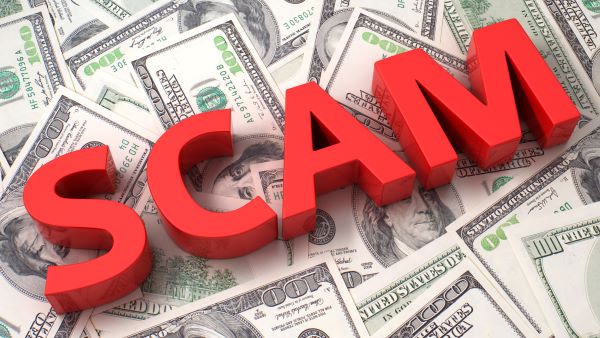AARP estimates that three out of four Americans over the age of 50 are planning…

Make Sure You Don’t Fall Prey to Criminal Scams
Every time people are vulnerable or in need, criminals come out of the woodwork, and nobody needs reminding how many of us today are in exactly that situation. The opportunities to exploit fear and need are especially rich and varied in the Covid environment. ABC News reports that as of April 10, the Federal Trade Commission has logged $12 million in Covid-related theft. Given that the epidemic didn’t start to bite in the U.S. until March at the earliest, that is an impressive number for less than two months.
Examples of Criminal Scams
This article cautions against only a few examples of the teeming horde of ingenious criminal scams that seek to prey on our worries and separate us from our money, at a time when we can least afford it. The Department of Homeland Security recommends a visit to the National Cybersecurity Alliance website, which provides a long, long list of resources and specific advice.
The FBI has compiled a long list of warnings, which grows daily. Visit https://www.fbi.gov/coronavirus for those warnings/
The Federal Communications Commission advises of scams principally relying on the telephone. Have a listen, on the FCC website, to the recorded examples of frauds being tried. Some are surprisingly persuasive. One particularly pernicious example is a bogus offer for a free coronavirus test coupled with a diabetes monitor.
Identifying Fraud Phone Numbers
The phone calls can show genuine-looking but spoofed numbers from a D.C. area code. The U.S. Department of Health and Human Services will not be calling you to demand that you take a “mandatory” Covid test. It will not call to warn you of an “outbreak” in your area and offer to connect you with a healthcare “advisor.” The IRS will never call to mine your personal information for any purpose over the phone, but, these days, watch out, especially for calls urging you to take action to hasten your tax refund or your Covid stimulus check. You will get those by mail or direct deposit. Never by phone or text notices.
Beware of texts and phone calls offering sanitizing products or free streaming entertainment services during quarantine. Beware of threats to suspend your Social Security benefits due to fraud “discovered” on your account. Hang up and contact your local Social Security Office. If you are holding a student loan, your lender will not be calling on the phone – it may offer you some Covid relief by mail, but it will not do so over the wires.
Beware of Disclosing Personal Information
Do not divulge Medicare information over the phone. The Office of the Inspector General
https://oig.hhs.gov/coronavirus/fraud-alert-covid19.asp
warns that personal information “can be used to fraudulently bill Federal health care programs and commit medical identity theft. If Medicare or Medicaid denies the claim for an unapproved test, the beneficiary [in other words, you] could be responsible for the cost.”
Criminal Scams Targeting Children
Pay attention to children’s exposure. The FBI warns that “children who are home from school and spending more time online may be at increased risk for exploitation.”
Forbes has provided a list of suspect websites and domains.
If you get a text from a friend with a suspicious link that seems out of character, call your friend first, to make sure he or she wasn’t hacked. Before you donate to any charity, always verify first by calling it yourself or by checking its website. If you open a suspicious email by mistake, whatever you do, do not ever click on links or open attachments. Simply close and delete the message.
Report fraud by contacting your state Attorney General’s office, or the National Center for Disaster Fraud Hotline (866) 720-5721, [email protected].
We help people protect themselves against fraud or abuse through the estate planning process. If you’d like to discuss your particular situation, please contact our New York office or call us at 607-271-9270.



